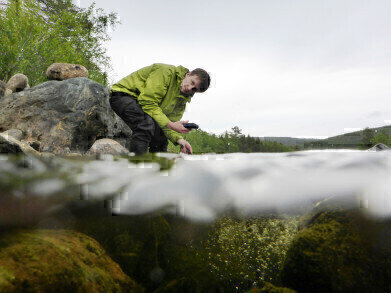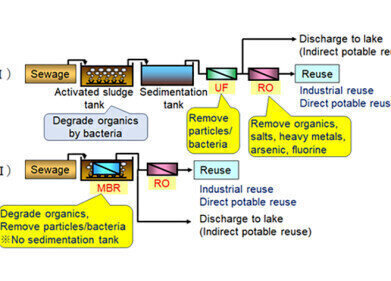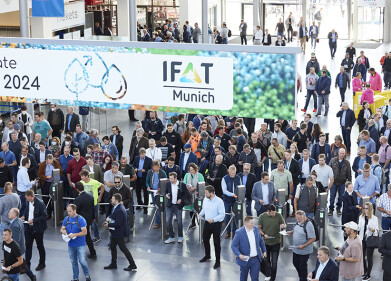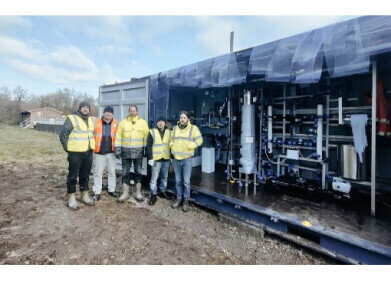-
 Matt Turley monitoring water quality in the Teno River Finland
Matt Turley monitoring water quality in the Teno River Finland
Water/Wastewater
Using Biodiversity to Identify Sediment Pollution in Rivers
Apr 14 2015
A collaborative research project led by the University of Brighton’s Aquatic Research Centre has developed a new technique to help protect the biodiversity of freshwater ecosystems and save millions in monitoring costs.
The research, funded by the Natural Environment Research Council and the Environment Agency, produced a new tool to identify fine sediment pollution, which is one of the most common causes of reduced water quality and can have a damaging and costly effect on the health of freshwater ecosystems.
Fine sediment (organic and inorganic particles smaller than 2mm) is an essential natural component of freshwater ecosystems, but when levels are disrupted as a consequence of human activities, ecological degradation can occur which threatens the numerous “ecosystem services” that freshwaters provide. These services include water supplies,, self-purification, erosion control, nutrient and water cycling, and leisure/recreation services, valued globally in excess of $1.7 trillion per annum.
Owing to spatial and temporal variability of fine sediment, conventional monitoring can be relatively expensive and time-consuming. Sampling must be frequent enough to ensure that the values obtained are representative.
The research, led by Matt Turley, a PhD candidate in the University of Brighton’s School of Environment and Technology, is published this month in Ecological Indicators*.
The research resulted in the production of a tool that uses the abundance of certain species of invertebrates within river sites, to indicate fine sediment exposures.
Co-author of the study, Dr Gary Bilotta, Head of the Aquatic Research Centre and Senior Lecturer in the School of Environment and Technology, said: “This tool combines expert knowledge with empirical data in order to weight species’ sensitivity to fine sediment. It will be extremely valuable to those involved in the implementation of international water quality legislation, such as the EU Water Framework Directive, saving millions of pounds in monitoring costs in comparison with traditional high-resolution monitoring/sampling approaches. It will also improve the efficiency and effectiveness of assessments of compliance with environmental legislation.”
Events
May 05 2024 Seville, Spain
May 13 2024 Munich, Germany
May 23 2024 Beijing, China
May 23 2024 Beijing, China
Jun 10 2024 Algiers, Algeria












